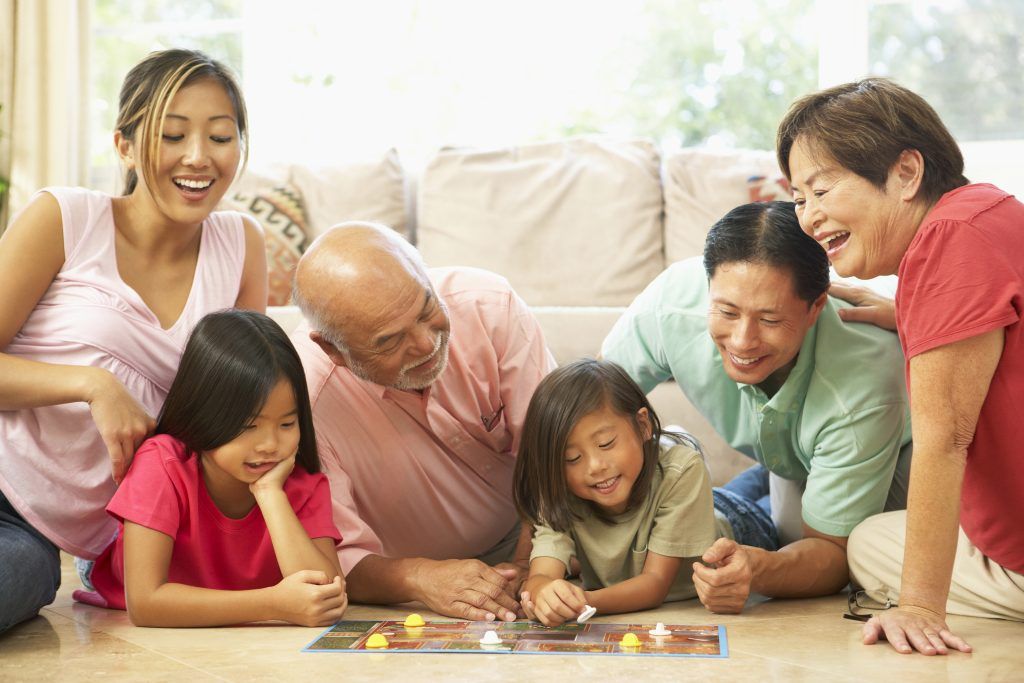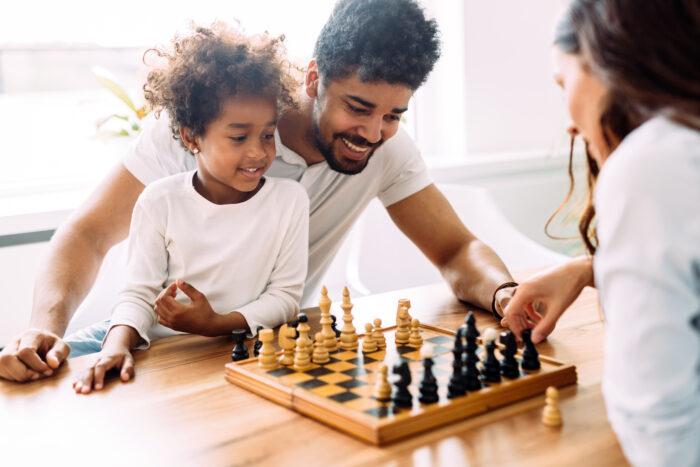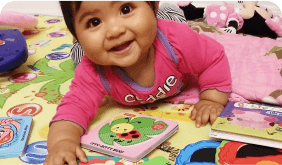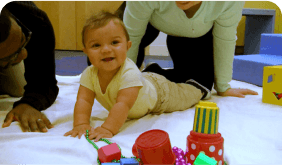What better way to bring the family together than a family game night? Grab the kids, make some snacks, and get ready to play!
Games are great for promoting many areas of development.
They help children of all ages learn and problem solve, and encourage siblings to play together. They also help children learn about winning and losing, and strengthen your social-emotional bonds as a family. But enough of that good stuff—let’s get to playing!
So what are your family game night options? How can you pick the best one for all of you? Read more to see our tips for choosing a board game, card game, virtual game, movement game, or to make your own game!

Should you play a board game?
What skills will we build?
Board games help with problem solving, strategic thinking, and communication. Some, especially those with small pieces that require regular movements, can also exercise fine motor skills.
Who will be playing?
These are best for children ages 2 and up. With small pieces, there could be a choking hazard, so be sure to check if the game is age appropriate.
Board games could also be adapted for a younger age. For example, you can simplify the rules or replace game pieces with larger pieces, so children of all ages can play together.
What kind of games should we look for?
There are so many great board game options! Look for games everyone can get involved with, and preferably ones that takes about 30 minutes to complete, so your child will stay interested. Popular games for all ages include:
Connect 4
Operation
Chutes and Ladders
Sorry

Should you play a card game?
What skills will we build?
Card games are great for problem solving and communication. They also test our memory and inhibition control, because we need to remember which cards are available and not give away any secrets of what our cards may be. These are key executive function
Who will be playing?
There are card games for children of all ages, but these are typically a good fit for families with children 3 years and older.
What kind of games should we look for?
Many card games can be played with just a standard deck. These games include:
Crazy Eights
Go Fish
Concentration
Other games require a special deck, such as:
Uno
Smack It!
Don’t forget to considered if a game is structured or unstructured. Ideally, you want your child to experience a mix of both:
Should you play a virtual game?
What skills will we build?
Virtual games can be great interactive experiences for all ages. They can help with problem solving and memory, and even social-emotional development, as many virtual games have players interact with characters.
Who will be playing?
These are best for children 2 and up; children under 18 months should not have prolonged screen time.
What kind of games should we look for?
Look for games that only take about 30 minutes to play, or can be broken up into small increments. This way, you can easily set boundaries.
If you’re considering purchasing a video gaming system, some systems work with more kid-friendly games and have large, easy-to-use controls. Consider the best fit for your child!
Some streaming services have interactive adventure games for the whole family to play. Check out to see if your child’s favorite characters have their own game!
There are also some classic games that are available virtually, so the whole family can play anytime, anywhere! Games like bingo and Uno can be played via app.
Should you play a movement game?
What skills will we build?
Of all your family game night options, movement games may be the best way to work fine and gross motor skills. It may be through writing, drawing, or gesturing, but they will get you moving!
Who will be playing?
This is a broad category, so they can be good for all ages, but parents need to think about strength and skills to find the best fit!
What kind of games should we look for?
For babies and toddlers, some great movement games are:
ThinkFun Roll and Play
Build an indoor obstacle course
Get creative with any of our Baby Games!
For children 3 and up, some great movement games include:
Twister
Simon Says
Outburst
Pictionary
Charades
Heads Up!

Should you make your own game?
This may be the biggest challenge of them all—but you got this!
What skills will we build?
Similar to unstructured play, making up a game as you go along can have its own unique set of benefits! It takes creativity and confidence to start from scratch, so give yourself an extra pat on the back!
Who will be playing?
What are the ages of your little ones? What skills do they currently have, or what skills are you looking to work on with them?
What will the outcome be?
While the game may not be perfect, it can be an awesome challenge for the whole family! Looking for a starting point? Try building your own scavenger hunt, having your own Olympic-style competition, or incorporating fun elements like food.
Game on!





